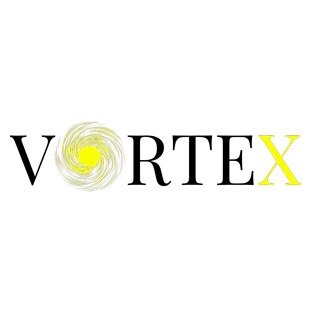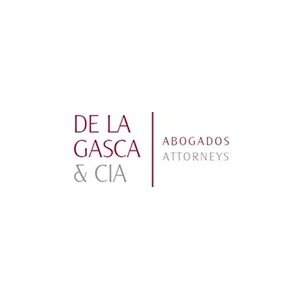Best Energy Regulatory Law Lawyers in San Salvador
Share your needs with us, get contacted by law firms.
Free. Takes 2 min.
List of the best lawyers in San Salvador, El Salvador
About Energy Regulatory Law in San Salvador, El Salvador
Energy Regulatory Law in San Salvador, El Salvador refers to the body of laws, regulations, and policies governing the production, distribution, commercialization, and consumption of energy resources, including electricity, hydrocarbons, and renewable energies. This field of law ensures that energy generation and supply meet both national standards and international commitments, promotes fair competition, protects consumers, and encourages sustainable development. Regulatory oversight is carried out by key governmental agencies tasked with setting tariffs, granting licenses, monitoring compliance, and resolving disputes.
Why You May Need a Lawyer
Dealing with energy-related legal matters can be complex. You may need a lawyer specializing in Energy Regulatory Law for reasons such as:
- Navigating the permitting and licensing process for energy projects
- Understanding or negotiating energy purchase agreements
- Resolving disputes with energy providers or regulatory authorities
- Ensuring compliance with local and international environmental standards
- Advising on tariffs, rate structures, and other regulatory fees
- Managing legal risks related to renewable energy projects
- Protecting your business during inspections or audits by regulatory bodies
- Assisting with connections to the national grid or cross-border energy trade
- Representing you in administrative or judicial proceedings regarding regulatory decisions
Local Laws Overview
San Salvador, as the capital of El Salvador, adheres to national legislation but may have additional municipal considerations. Key aspects include:
- The primary legal framework is defined by the General Electricity Law (Ley General de Electricidad), the Hydrocarbons Law (Ley de Hidrocarburos), and the Renewable Energy Promotion Law (Ley de Incentivos para el Uso de Fuentes Renovables de Energía).
- The Superintendent of Electricity and Telecommunications (SIGET) is the main regulator, overseeing market operations, tariff regulation, and compliance.
- Concessions and permits are required for generation, distribution, and commercialization of energy.
- Environmental compliance is supervised by the Ministry of Environment and Natural Resources (MARN), ensuring that projects meet sustainability standards.
- Consumer rights and dispute resolution are protected and managed through regulatory and judicial forums.
- Renewable projects benefit from specific incentives, but must meet strict regulatory criteria.
Frequently Asked Questions
What is the role of SIGET in energy regulation?
SIGET is the main regulatory body for electricity and telecommunication markets. It grants licenses, sets tariffs, monitors compliance, and handles disputes in the energy sector.
Do I need a permit to generate electricity for self-consumption?
Yes, even small-scale generation often requires prior notification or a permit from SIGET, especially if you plan to feed surplus energy into the national grid.
How are electricity tariffs determined in San Salvador?
Electricity tariffs are set and reviewed by SIGET considering the cost of generation, transmission, distribution, and a fair return for operators, while also protecting consumers from unfair price increases.
What incentives exist for renewable energy projects?
El Salvador offers tax breaks, import duty exemptions, and expedited permitting for eligible renewable projects under the Renewable Energy Promotion Law.
What legal recourse do I have if I disagree with an energy bill?
You can file a claim with your provider first. If unresolved, you can escalate to SIGET, and ultimately pursue the matter in administrative or judicial forums.
Can foreign companies invest in the energy sector?
Yes, foreign investment is allowed and encouraged in the energy sector, but investors must comply with local licensing, environmental, and regulatory requirements.
Are there environmental assessments for energy projects?
Most energy projects require a prior environmental impact assessment, approved by the Ministry of Environment and Natural Resources (MARN), before construction or operation.
What types of energy are regulated?
Electricity, oil and gas (hydrocarbons), and renewable resources such as solar, wind, geothermal, and biomass are all regulated under Salvadoran law.
How can I participate in public tenders or contracts for energy supply?
You must comply with procurement rules set by SIGET and related authorities, register as a bidder, and submit proposals according to current calls for tender.
How quickly can a new energy project be approved?
Timelines vary depending on project size and complexity. Expect several months to a year, considering licensing, environmental, and technical reviews.
Additional Resources
For further information or assistance in Energy Regulatory Law in San Salvador, consider these resources:
- Superintendent of Electricity and Telecommunications (SIGET) - The primary regulator responsible for licensing, tariffs, and compliance.
- Ministry of Environment and Natural Resources (MARN) - Handles environmental assessments and sustainability requirements.
- Secretariat for Energy (Secretaría de Energía) - Oversees energy policy development and long-term planning.
- Consumer Protection Agency (Defensoría del Consumidor) - Supports consumers with complaints and disputes regarding energy providers.
- Chamber of Energy of El Salvador (Cámara de Energía de El Salvador) - Industry organization providing news, guidance, and networking for energy sector professionals.
Next Steps
If you require legal assistance with Energy Regulatory Law in San Salvador, El Salvador, follow these recommended steps:
- Define your energy-related legal issue or project requirements in as much detail as possible.
- Gather all relevant documents, including permits, contracts, correspondence, and evidence of compliance or disputes.
- Contact a legal professional or law firm specializing in Energy Regulatory Law with experience in Salvadoran regulations.
- Consult with the appropriate regulatory agency to clarify procedural requirements if possible.
- Follow legal advice closely to ensure full compliance and minimize risk.
- Stay informed of any legal changes by subscribing to industry updates or monitoring regulatory agency announcements.
Seeking experienced legal counsel can help you achieve compliance, protect your interests, and navigate the dynamic landscape of energy regulation in San Salvador, El Salvador.
Lawzana helps you find the best lawyers and law firms in San Salvador through a curated and pre-screened list of qualified legal professionals. Our platform offers rankings and detailed profiles of attorneys and law firms, allowing you to compare based on practice areas, including Energy Regulatory Law, experience, and client feedback.
Each profile includes a description of the firm's areas of practice, client reviews, team members and partners, year of establishment, spoken languages, office locations, contact information, social media presence, and any published articles or resources. Most firms on our platform speak English and are experienced in both local and international legal matters.
Get a quote from top-rated law firms in San Salvador, El Salvador — quickly, securely, and without unnecessary hassle.
Disclaimer:
The information provided on this page is for general informational purposes only and does not constitute legal advice. While we strive to ensure the accuracy and relevance of the content, legal information may change over time, and interpretations of the law can vary. You should always consult with a qualified legal professional for advice specific to your situation.
We disclaim all liability for actions taken or not taken based on the content of this page. If you believe any information is incorrect or outdated, please contact us, and we will review and update it where appropriate.











